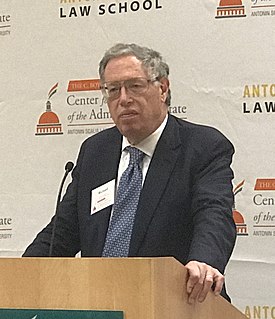Top 30 Quotes & Sayings by Marcus Borg
Explore popular quotes and sayings by an American scholar Marcus Borg.
Last updated on April 17, 2025.
There are people who assume that Christianity is about the afterlife and that our chief problem in this life is that we are sinners who need to be punished and the point of Jesus life is that he took our punishment so we can go to heaven. I write about the problems we get ourselves into by misunderstanding and limiting the way we think about our faith.
I let go of the notion that the Bible is a divine product. I learned that it is a human cultural product, the product of two ancient communities, biblical Israel and early Christianity. As such, it contained their understandings and affirmations, not statements coming directly or somewhat directly from God. . . . I realized that whatever "divine revelation" and the "inspiration of the Bible" meant (if they meant anything), they did not mean that the Bible was a divine product with divine authority.
People who think of God as a warrior may become warriors themselves, whether in a Christian crusade, a Muslim jihad, or an apocalyptically oriented militia. People who think of God as righteous are likely to emphasize righteousness themselves, just as those who think of God as compassionate are likely to emphasize compassion. People who think God is angry at the world are likely to be angry at the world themselves.
When tradition is thought to state the way things really are, it becomes the director and judge of our lives; we are, in effect, imprisoned by it. On the other hand, tradition can be understood as a pointer to that which is beyond tradition: the sacred. Then it functions not as a prison but as a lens.
The point is not that Jesus was a good guy who accepted everybody, and thus we should do the same (though that would be good). Rather, his teachings and behaviour reflect an alternative social vision. Jesus was not talking about how to be good and how to behave within the framework of a domination system. He was a critic of the domination system itself.
I would argue that the truth of Easter does not depend on whether there was an empty tomb, or whether anything happened to the body of Jesus. ... I do not see the Christian tradition as exclusively true, or the Bible as the unique and infallible revelation of God. ... It makes no historical sense to say, 'Jesus was killed for the sins of the world.' ... I am one of those Christians who does not believe in the virgin birth, nor in the star of Bethlehem, nor in the journeys of the wisemen, nor in the shepherds coming to the manger, as facts of history.
God loves us already and has from our very beginning. The Christian life is not about believing or doing what we need to believe or do so that we can be saved. Rather, it's about seeing what is already true ? that God loves us already ? and then beginning to live in this relationship. It is about becoming conscious of and intentional about a deepening relationship with God.
Jesus disclosed that God is compassionate. Jesus spoke of God that way: "Be compassionate, as God is compassionate." Compassion is the primary quality of the central figures in two of his most famous parables: the father in the parable of the Prodigal Son and the Good Samaritan. And Jesus himself, as a manifestation of the sacred, is often spoken of as embodying compassion.
Seminary also introduced me to the historical study of Jesus and Christian origins. I learned from my professors and the readings they assigned that Jesus almost certainly was not born of a virgin, did not think of himself as the Son of God, and did not see his purpose as dying for the sins of the world. .. I also found the claim that Jesus and Christianity were the only way of salvation to be troublesome.
I affirm, along with many others, that the major enduring religions of the world are all valid and legitimate. I see them as the responses to the experience of God in the various cultures in which each originated. To be Christian means to find the decisive revelation of God in Jesus. To be Muslim means to find the decisive revelation of God in the Koran.
One of God's central qualities is compassion, a word that in Hebrew is related to the word for "womb." Not only is compassion a female image suggesting source of life and nourishment but it also has a feeling dimension: God as compassionate Spirit feels for us as a mother feels for the children of her womb. Spirit feels the suffering of the world and participates in it. . . .
Religion is much more than language, but to be Christian does mean speaking Christian for most people. The language many of us use has contributed to the crisis in Christianity in North America. Traditional Christian language is becoming less familiar to millions of people. The language is frequently misunderstood by people.
The Christian life is not about pleasing God the finger-shaker and judge. It is not about believing now or being good now for the sake of heaven later. It is about entering a relationship in the present that begins to change everything now. Spirituality is about this process: the opening of the heart to the God who is already here.
Some people find the experience and practice of compassion as a spiritual discipline to be a more direct route to the transformation of the heart than prayer. It is not that prayer does not or should not play a role in their lives, but their way to the opening of the heart lies through deeds of compassion. "Just do it" summarizes this path of transformation.
'Believing' cannot tip the scales in making a historical judgement about whether something really happened. I can choose to believe that George Washington threw a silver dollar across the Rappahannock, but my believing that he did it has nothing to do with whether or not he really did do it. So also with the story of Jesus walking on water: Believing that he did it has nothing to do with whether he really did do it. 'Belief' cannot be the basis for historical conclusions; it has no direct relevance.





















